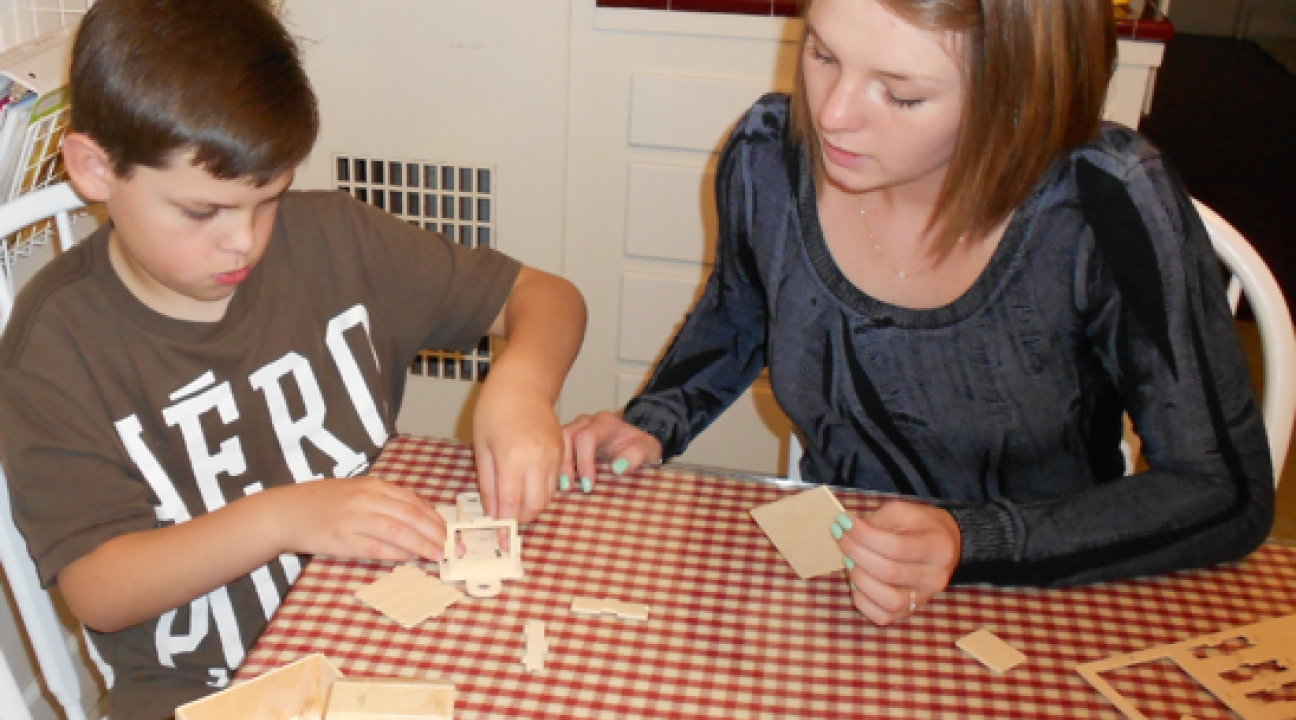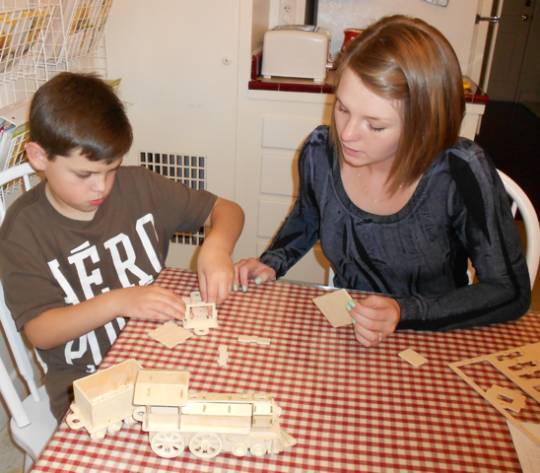Helping Autistic Children
Students Aid Families of Autistic Children Where They Need it the Most
Years ago, the internship coordinator for the Sonoma State Psychology Department was faced with a dilemma-- she was overwhelmed with calls requesting students to support families with autistic children desperate for help.
But SSU had no such training programs at the time.
So, the University partnered with the North Bay Regional Center to launch the Collaborative Autism Training and Support program, otherwise known as CATS.
The incidence of autism is rising 10 - 17% annually, according to government reports cited by the advocacy group Autism Speaks, but resources for autism spectrum disorders haven't necessarily caught up with the rapid expansion of cases.
Unfortunately, with continuing California budget cuts to SSU funding, the future of the CATS program is uncertain. As University financial resources have dwindled, so has the CATS budget.
Last semester, two donors stepped in to fill the financial gap, enabling the university to offer the service-learning class for two consecutive semesters, rather than simply once a year.
Both donors were parents of children who had been served by students trained through the CATS program, emphasizing both the unmatched and crucial service that CATS provides and the two-way relationship that it fosters within the community.
"I like to think of it like an old-fashioned barn raising, where the community gets together. There's a need and the community meets it," says program director and founder Lorna Catford.
Established in 2005, CATS filled a growing community need for resources to serve children and families dealing with autism spectrum disorders. Catford won the James E. Coffee Human Rights Award for CATS impact on the community in 2009.
Since then, the project has received support from the California Parenting Institute, virtually all local autism agencies, and many local autism experts. But funding is always a looming issue so CATS created the Autism Angels donor program to help generate financial support year to year. It is always a pressing need.
"It's a totally grass-roots resource in our community to support kids with autism spectrum disorders and their families, and to give students the tools to go on and make a difference.
Students in the class have more job offers than they can handle," says Catford, emphasizing how mutually beneficial this unique service-learning, University-based model has proved to be.
Mary Ellen Wells, mother of Noah, who was diagnosed with an autism spectrum disorder in 2005, concurs.
"The students continue to be a source of inspiration to us. They bring their open-hearts, their creativity, their willingness to learn about autism," she says.
"The CATS Program provides a much needed service in that it not only gives the students hands-on training, but provides the parents with an extra pair of hands, and a break from their children so they can rest and recharge."
The program provides resources such as student courses, family support, professional and community autism education, and a wealth of autism awareness information.
Students from across all disciplines have participated in the CATS service-learning program, blending both academic courses in autism theory and external projects that provide local communities with a variety of autism support services.
Phil Mendelson, who has earned a certificate for 360 autism training and service hours and is currently an advanced teaching and research Intern, explains that he is very proud of the work he has done with the CATS program.
"I personally have been given the amazing opportunity of teaching as well as performing research, both of which have helped me tremendously throughout my undergraduate career and will continue to significantly assist through my graduate career," says Mendelson.
Thousands of student-community service have been logged, accumulated through assisting at autism agencies, transcribing autism seminars for public agency personnel training, and helping with major fundraisers for Autism Speaks.
Students also created a compendium of reviews of almost 200 books on autism and a resource manual for families and community agencies, called "Overview of Autism Research and Applications."
"I've talked with people who have tried to copy our program in other counties and they haven't been able to yet." she says.
"I think Sonoma County has the right mixture of the University being supportive, caring local agencies and community members willing to partner with the University, and everybody working together to champion the vision of community-wide autism awareness and support."
To date, more than 200 students have completed training in autism theory and interventions, and in turn, have offered over 15,000 hours of free support to more than 200 children and their families.
"I absolutely feel that CATS changed my whole life," says Amy Arthur Lester, a former CATS student who now works as an ABA therapist for children with autism aged 18 months - 6 years old in Sacramento. "I would not be where I am without it."
CATS families, students and contributors join together for a holiday celebration from 4-6 p.m. on Friday, Dec. 9 at Becoming Independent, 1425 Corporate Center Parkway, Santa Rosa.
For more information on CATS, contact Lorna Catford, (707) 664-2402, [email protected].
NOTE: Photos and interviews with the CATS students and the families they support are available upon request.



